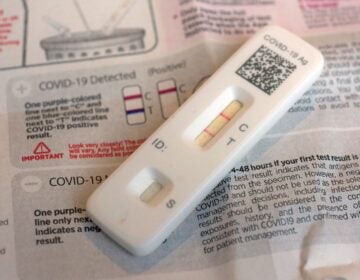Corbett brings $15 million for Delaware River dredging
Dredging the Delaware River shipping channel got a financial shot in the arm today. Governor Tom Corbett announced Pennsylvania is giving $15 million to the project. Once it’s complete, larger ships will be able to drop cargo at the Port of Philadelphia.
The money helps dig another five feet out of the Delaware River channel so newer, larger ships can come into the port. Governor Tom Corbett says without dredging, jobs will be lost; with it 8,000 to 12,000 new direct jobs will be created.
“As with any economic growth, it’s going to have a ripple effect, often in ways that not going to be able to forecast but what we do know is that the growth in Philadelphia will ripple across the entire state and I always believe when one part of the state does well, the entire state does well,” said Corbett.
Boise Butler is head of the Longshoreman’s Union, which represents many port workers. He says the project positions Philadelphia to acquire new work.
“The truth of the matter is there’s no port expansion without the deepening of this river,” said Butler. “This river is the most important thing that has to be done right now is the deepening of this river. We don’t exist, we won’t exist without the deepening of this river.”
Former U.S. Senator Arlen Specter (R-Pa.) says when he was in Washington, $77 million was appropriated for the project. When opposition delayed the dredging, Specter says money was taken away.
“The Corps of Engineers reprogrammed $55 million, and I’m still trying to find out where the money went,” said Specter.
South Jersey Congressman Rob Andrews (D-Haddon Heights) has opposed the project from the beginning. He says Governor Corbett is making a mistake and in his words, “throwing money into a hole” by dredging.
“The problem with dredging is it’s not going to increase business on the Delaware River,” said Andrews. “The future is 50 foot ships, not 45 foot ships. The experts show if we build more rails, more piers more warehouses, we are going to get more business with the 40 foot channel. That’s what we should be doing rather by risking water pollution and dumping on the shores of New Jersey.”
The project is expected to take three to five years to complete.
WHYY is your source for fact-based, in-depth journalism and information. As a nonprofit organization, we rely on financial support from readers like you. Please give today.




